Genetics
-
 Earth
EarthBringing mammoths back, life on early Earth and more reader feedback
Readers debate the pros and cons of reviving extinct species, discuss the odd light-processing machinery of the eye and more.
-
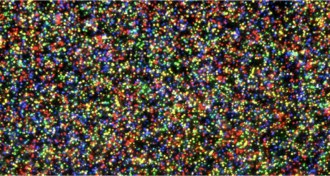 Genetics
GeneticsEnormous quantities may soon be called ‘genomical’
Genetic data may soon reach beyond astronomical proportions.
-
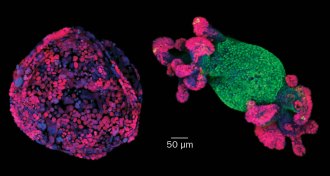 Genetics
GeneticsGenetic switch wipes out tumors in mice
By switching on a single gene, researchers turned cancer cells in mice back into normal intestinal tissue.
By Meghan Rosen -
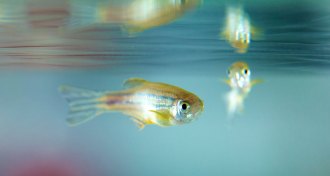 Genetics
GeneticsMutation-disease link masked in zebrafish
Zebrafish study shows organisms can work around DNA mutations.
-
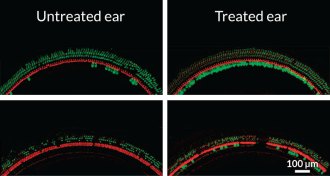 Genetics
GeneticsGene therapy restores hearing in mice
Scientists have used gene therapy to restore hearing in deaf mice.
-
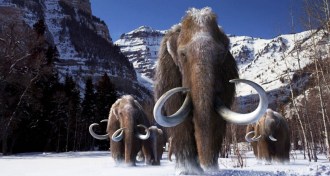 Genetics
GeneticsWhy mammoths loved the cold
An altered temperature sensor helped mammoths adapt to the cold.
-
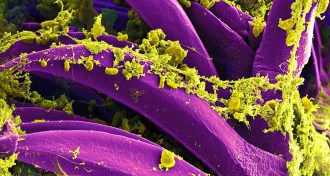 Health & Medicine
Health & MedicineGenetic tweak turned plague bacterium deadly
Two genetic changes allowed plague bacteria to cause deadly lung infections and pandemic disease.
-
 Health & Medicine
Health & MedicineSpit test could provide early warning of head, neck cancers
A new study shows that signs of head and neck cancer can be detected in saliva and blood plasma even before tumors are clinically diagnosed.
-
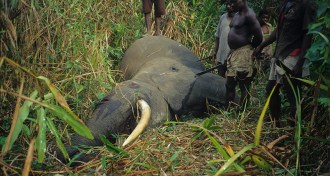 Genetics
GeneticsIvory DNA pinpoints poaching hot spots
Genetic analysis of ivory DNA reveals major poaching hot spots in Africa.
By Meghan Rosen -
 Anthropology
AnthropologyKennewick Man’s DNA links him to present-day Native Americans
Genetic analysis of Kennewick Man suggests that the ancient Pacific Northwest man was most closely related to modern Native Americans, not Polynesians.
By Bruce Bower -
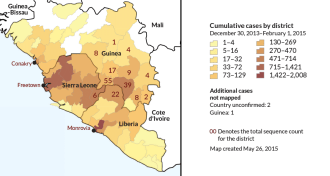 Genetics
GeneticsEbola continues to shift, but grows no more fatal
In the West African epidemic, Ebola evolved and spread quickly, but the virus is not becoming deadlier over time.
-
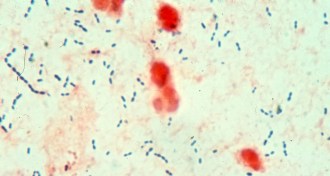 Genetics
GeneticsPneumonia bacteria attacks lungs with toxic weaponry
Some strains of the bacteria that causes pneumonia splash lung cells with hydrogen peroxide to mess with DNA and kill cells, a new study suggests.